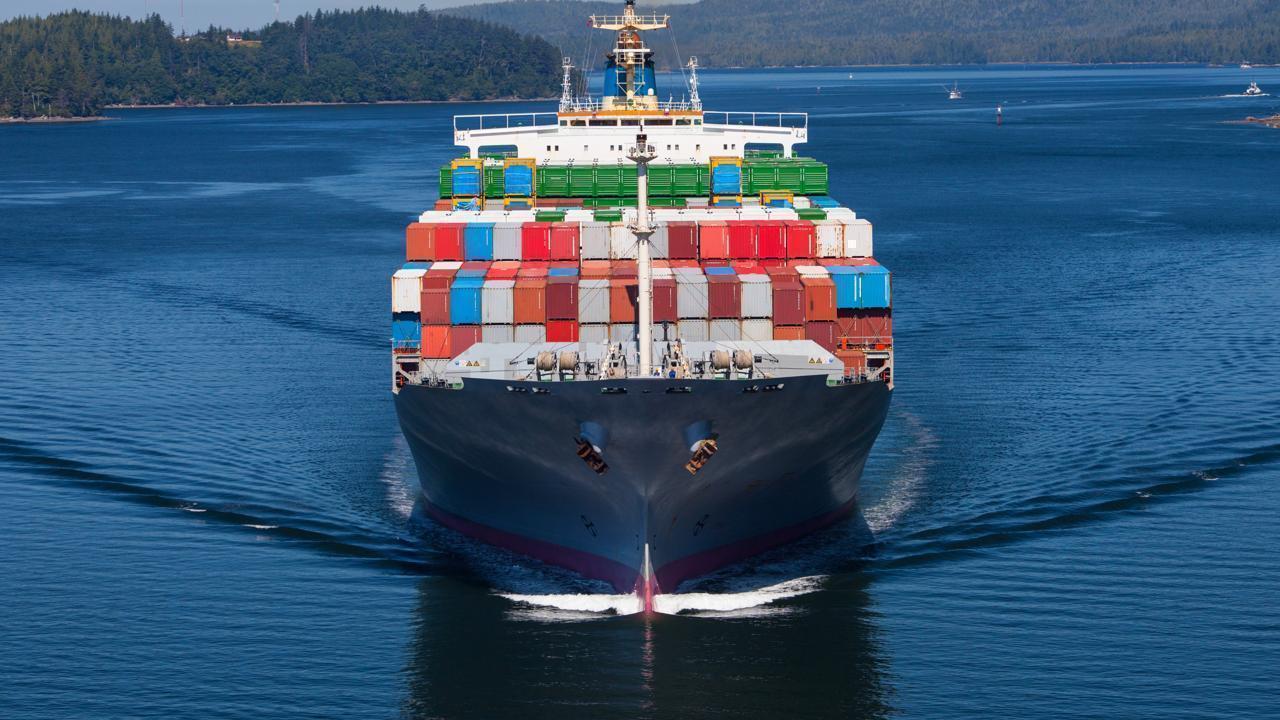
Post by : Amit
India Maritime Week 2025
India Maritime Week (IMW) 2025 is set to emerge as a landmark event for the global maritime industry, reflecting India’s growing ambitions as a strategic maritime hub. Scheduled from October 27 to 31 at Mumbai’s NESCO Exhibition Centre, the week-long event promises to gather over 60 nations and hundreds of maritime leaders, policy-makers, investors, and experts. The Ministry of Ports, Shipping and Waterways (MoPSW) has emphasized the event’s potential to unlock $114 billion in investment opportunities across ports, shipping, logistics, and marine technologies.
As India positions itself as a linchpin in global maritime trade, IMW 2025 serves as a platform to showcase innovations, enhance international cooperation, and highlight the country’s strategic maritime priorities. The event underscores the government’s commitment to transforming India’s maritime infrastructure, strengthening its naval capabilities, and creating an ecosystem conducive to sustainable maritime growth.
The Significance of India Maritime Week
IMW 2025 is more than just an exhibition; it is a strategic forum for dialogue, partnerships, and policy-making. India’s maritime sector is integral to its economy, facilitating over 90% of trade by volume. With its strategic location along key international sea lanes, India is poised to leverage this sector for economic growth, regional influence, and security cooperation.
The week-long program includes high-level conferences, technical exhibitions, and specialized dialogues on topics ranging from port modernization to climate-resilient maritime practices. By attracting global participation, IMW 2025 positions India as a driver of maritime development, while providing international investors with opportunities to engage in the country’s expanding maritime ecosystem.
Global Maritime Participation
IMW 2025 will feature delegates from more than 60 countries, spanning Europe, Asia, Africa, the Middle East, and the Americas. These participants will include shipping companies, port authorities, equipment manufacturers, technology providers, and environmental experts. The diversity of participants reflects India’s intent to foster multilateral collaboration in maritime infrastructure, security, and trade facilitation.
Global maritime players view India as a market of immense potential, given its ambitious port expansion plans, container handling capacity, and investment in maritime technology. By creating a platform for direct engagement, IMW 2025 enhances opportunities for joint ventures, technology transfers, and cross-border partnerships.
4th Global Maritime India Summit (GMIS)
The 4th GMIS will be a flagship forum within IMW 2025, bringing together industry leaders, government officials, and investors to discuss maritime reforms, global shipping trends, and emerging business opportunities. Topics will include port modernization, digital transformation, cargo logistics, and sustainable shipping practices. GMIS is expected to facilitate policy recommendations and actionable strategies that align with India’s maritime growth objectives.
2nd Sagarmanthan – The Great Oceans Dialogue
The Sagarmanthan dialogue focuses on strategic ocean governance, climate action, and technological innovation in maritime operations. Discussions will address challenges such as rising sea levels, ocean pollution, and sustainable fisheries management. By integrating environmental priorities into economic and strategic planning, Sagarmanthan exemplifies India’s commitment to responsible maritime development.
1st QUAD Ports of the Future Partnership Conference
Aligned with the strategic QUAD initiative, this conference will explore cooperation among India, the United States, Japan, and Australia on future-ready ports. Discussions will cover cybersecurity in port operations, automation, smart logistics, and interoperability of naval and civilian maritime assets. The conference underscores the importance of international collaboration in enhancing regional security and trade efficiency.
UNESCAP Conference: Asia-Pacific Maritime Connectivity
The United Nations Economic and Social Commission for Asia and the Pacific (UNESCAP) will convene a regional dialogue on sustainable maritime connectivity. This forum will focus on fostering seamless transport networks, standardizing port operations, and implementing policies for climate-resilient maritime infrastructure. By engaging regional stakeholders, India reinforces its role as a hub for maritime integration in the Indo-Pacific.
Investment Opportunities: $114 Billion at Stake
The Indian government has highlighted $114 billion in potential investments, spanning ports, logistics, shipbuilding, maritime technology, and offshore energy. This figure reflects India’s strategic push to modernize port infrastructure, expand cargo handling capacity, and attract private investment in maritime services.
Ports and Logistics
Significant investments are earmarked for deepening port channels, modernizing terminals, and implementing automated cargo handling systems. Public-private partnerships (PPPs) are being encouraged to optimize operational efficiency and increase throughput. These upgrades will allow India to accommodate larger vessels, reduce turnaround times, and enhance trade competitiveness.
Shipbuilding and Marine Technology
India is aiming to become a regional hub for shipbuilding, repair, and maintenance. Investments in shipyards, advanced propulsion systems, and smart ship technologies will strengthen domestic manufacturing capabilities. Collaborations with international companies will bring expertise in energy-efficient vessels, hybrid propulsion, and maritime automation.
Sustainable Maritime Practices
A portion of the projected $114 billion investment is dedicated to environmental sustainability. This includes initiatives to reduce port emissions, develop green shipping corridors, implement shore-power facilities, and promote the use of alternative fuels such as LNG and biofuels. These measures align with global maritime decarbonization goals and enhance India’s credibility as a sustainable maritime partner.
Digital and Technological Innovations
IMW 2025 also showcases India’s digital transformation in maritime operations. Smart ports, AI-driven logistics, automated cargo tracking, and blockchain-based documentation are among the innovations being displayed. Digital integration reduces human error, improves supply chain transparency, and facilitates real-time decision-making, making Indian ports more competitive in the global shipping market.
Advanced technologies such as autonomous vessel operations, predictive maintenance systems, and port management software are expected to be demonstrated. By embracing technological innovation, India is positioning itself at the forefront of modern maritime practices and offering investors opportunities to participate in a rapidly evolving sector.
Climate Preparedness and Resilience
India is emphasizing climate preparedness in its maritime strategy. Rising sea levels, extreme weather events, and coastal erosion threaten infrastructure, livelihoods, and trade. IMW 2025 will highlight initiatives such as resilient port design, climate-adaptive shipping operations, and disaster response mechanisms.
Stakeholders will discuss early warning systems, emergency response drills, and integration of climate data into operational planning. These initiatives are critical for minimizing disruption to trade and ensuring safety in the face of environmental uncertainties.
Strategic and Security Implications
India’s maritime transformation extends beyond economics into national security. Strengthening port infrastructure, enhancing digital monitoring, and adopting advanced naval technologies ensures the country’s ability to protect sea lanes, counter piracy, and respond to maritime emergencies.
The participation of QUAD partners in the Ports of the Future conference reflects the strategic dimension of maritime cooperation. By fostering secure and efficient ports, India not only bolsters trade but also strengthens regional stability and its influence in the Indo-Pacific.
Workforce Development and Training
IMW 2025 underscores the importance of a skilled maritime workforce. Training programs in navigation, logistics management, environmental compliance, and port operations are being upgraded to global standards. Digital learning platforms, simulation-based training, and certification courses ensure personnel are prepared to operate in modern, technologically advanced maritime environments.
This focus on human capital ensures that India’s maritime ambitions are supported by competent professionals capable of leveraging technology, implementing best practices, and responding to emergencies effectively.
International Collaboration and Networking
IMW 2025 provides an unprecedented platform for international collaboration. Governments, industry leaders, and investors have the opportunity to form strategic partnerships, negotiate deals, and share knowledge. The event facilitates networking across sectors such as shipping, ports, energy, and maritime technology, creating avenues for joint ventures and cross-border innovation.
This collaborative environment strengthens India’s global maritime standing and fosters long-term partnerships that can drive sustainable growth in the Indo-Pacific region.
Challenges and the Path Ahead
Despite ambitious plans, India’s maritime transformation faces challenges. Infrastructure upgrades require significant capital, coordination across government agencies, and seamless regulatory frameworks. Environmental compliance, workforce training, and technology adoption must be managed carefully to avoid delays or inefficiencies.
Moreover, international investors and partners need assurances of regulatory stability, transparent procedures, and return on investment. Addressing these challenges is critical to realizing the full $114 billion potential and ensuring long-term sustainability of India’s maritime sector.
Charting the Future of Indian Maritime
India Maritime Week 2025 is more than a trade show; it is a declaration of India’s maritime ambitions. By combining strategic investment, technological innovation, workforce development, and climate resilience, India is positioning itself as a global leader in maritime infrastructure, trade, and security.
With participation from over 60 nations, IMW 2025 is expected to catalyze partnerships, attract investments, and showcase India’s commitment to sustainable, modern, and secure maritime operations. As the world’s attention focuses on Mumbai in late October, India is sending a clear message: its maritime sector is ready for the future, offering unparalleled opportunities for growth, collaboration, and innovation.
India’s maritime transformation promises to redefine trade, security, and environmental stewardship in the region. By leveraging investment, technology, and global partnerships, India is charting a path toward a maritime ecosystem that is resilient, sustainable, and strategically vital—an investment opportunity that the world cannot afford to overlook.
Maritime week, Global maritime, Investment opportunity
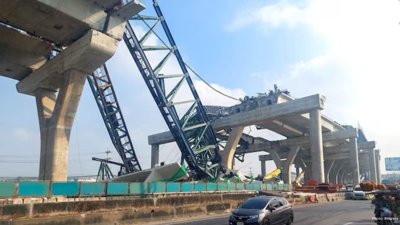
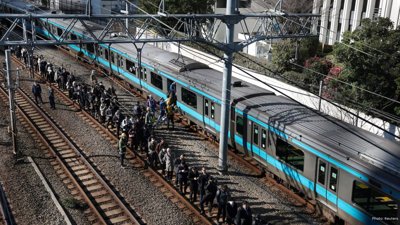


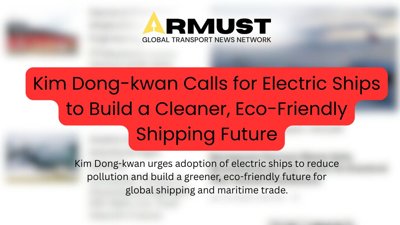
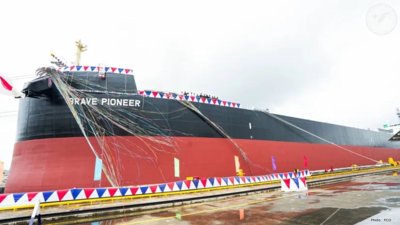




Advances in Aerospace Technology and Commercial Aviation Recovery
Insights into breakthrough aerospace technologies and commercial aviation’s recovery amid 2025 chall

Defense Modernization and Strategic Spending Trends
Explore key trends in global defense modernization and strategic military spending shaping 2025 secu

Tens of Thousands Protest in Serbia on Anniversary of Deadly Roof Collapse
Tens of thousands in Novi Sad mark a year since a deadly station roof collapse that killed 16, prote

Canada PM Carney Apologizes to Trump Over Controversial Reagan Anti-Tariff Ad
Canadian PM Mark Carney apologized to President Trump over an Ontario anti-tariff ad quoting Reagan,

The ad that stirred a hornets nest, and made Canadian PM Carney say sorry to Trump
Canadian PM Mark Carney apologizes to US President Trump after a tariff-related ad causes diplomatic

Bengaluru-Mumbai Superfast Train Approved After 30-Year Wait
Railways approves new superfast train connecting Bengaluru and Mumbai, ending a 30-year demand, easi